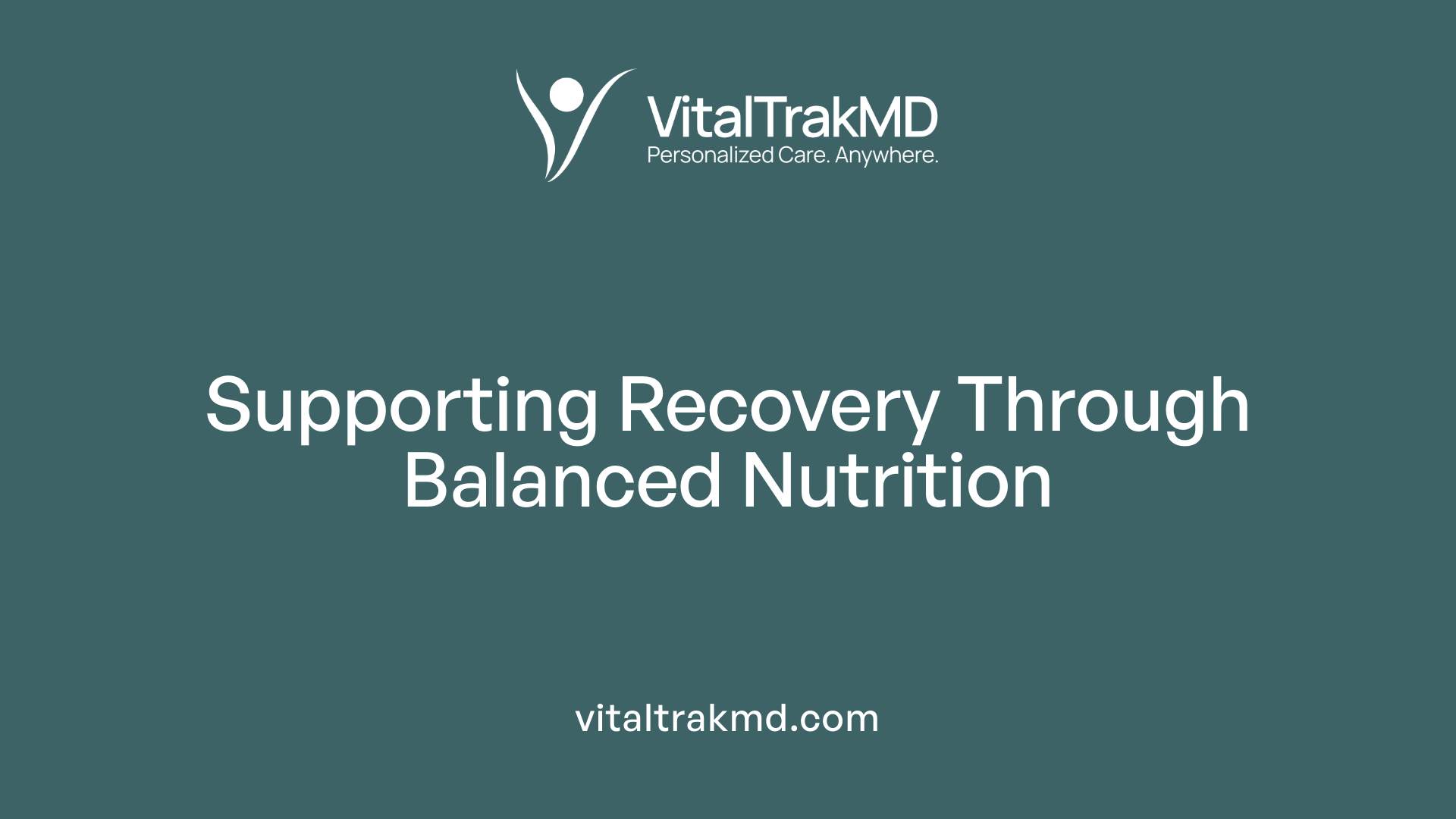How Nutrition Affects Chronic Illness Recovery

Understanding the Impact of Diet on Chronic Disease Recovery
Nutrition is an essential component in the management and recovery of chronic illnesses. From supporting immune function to reducing inflammation, what we eat profoundly influences health outcomes. This article explores the scientific evidence linking dietary choices to the recovery process, highlighting effective strategies and guidelines to optimize healing and enhance quality of life during illness management.
The Intersection of Nutrition and Chronic Disease Prevention and Management

How does food choice relate to health outcomes during the recovery from chronic illnesses?
Food choices are vital during recovery from chronic illnesses as they directly influence health outcomes. Consuming nutrient-dense foods rich in vitamins, minerals, antioxidants, and healthy fats can strengthen the immune system and promote tissue repair. For example, diets rich in fruits, vegetables, and lean proteins support healing and reduce inflammation, a common factor in many chronic conditions. Furthermore, selecting anti-inflammatory foods and maintaining balanced nutrient profiles helps manage symptoms and prevent complications. Proper nutrition not only accelerates recovery but also improves quality of life by supporting physical and mental resilience. According to health data from organizations like the CDC, consistent dietary patterns are crucial for long-term health and successful rehabilitation, emphasizing that nourishing the body facilitates recovery and reduces the risk of recurrence.
Harnessing Nutrition for Long-Term Health
Effective management and recovery from chronic illnesses hinge significantly on proper nutritional strategies. Adopting balanced, nutrient-rich diets and personalized interventions not only facilitate tissue repair and immune function but also mitigate disease progression. Public health guidelines, such as the DASH and Mediterranean diets, underscore the importance of nutrient-dense foods high in fiber, vitamins, and healthy fats. Moreover, integrating lifestyle modifications—including diet and exercise—can dramatically improve health outcomes, reduce symptom severity, and extend quality of life. As research continues to elucidate the complex mechanisms of nutrition in disease management, healthcare professionals are increasingly emphasizing a holistic, nutrition-focused approach to chronic illness recovery, empowering individuals to achieve better long-term health.
References
- The Role of Nutrition in Chronic Disease - PMC
- When it comes to nutrition and chronic disease, focus on the basics
- The Importance of Healthy Dietary Patterns in Chronic Disease ...
- nutrition connections with chronic diseases of later life - ScienceDirect
- Impact of Nutrition on Chronic Diseases: Prevention and Management
- The impact of clinical dietetics on recovery and rehabilitation
- Why Nutrition Matters in Recovery and Long-Term Care
- Nutrition and Chronic Pain
- Effects of exercise and diet on chronic disease
Recent articles
Want to Feel Better and Live Healthier?
Join hundreds of patients taking control of their health with personalized care that fits their life – not the other way around.
Rated 4.8/5 by 32+ customers







